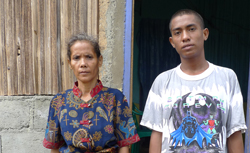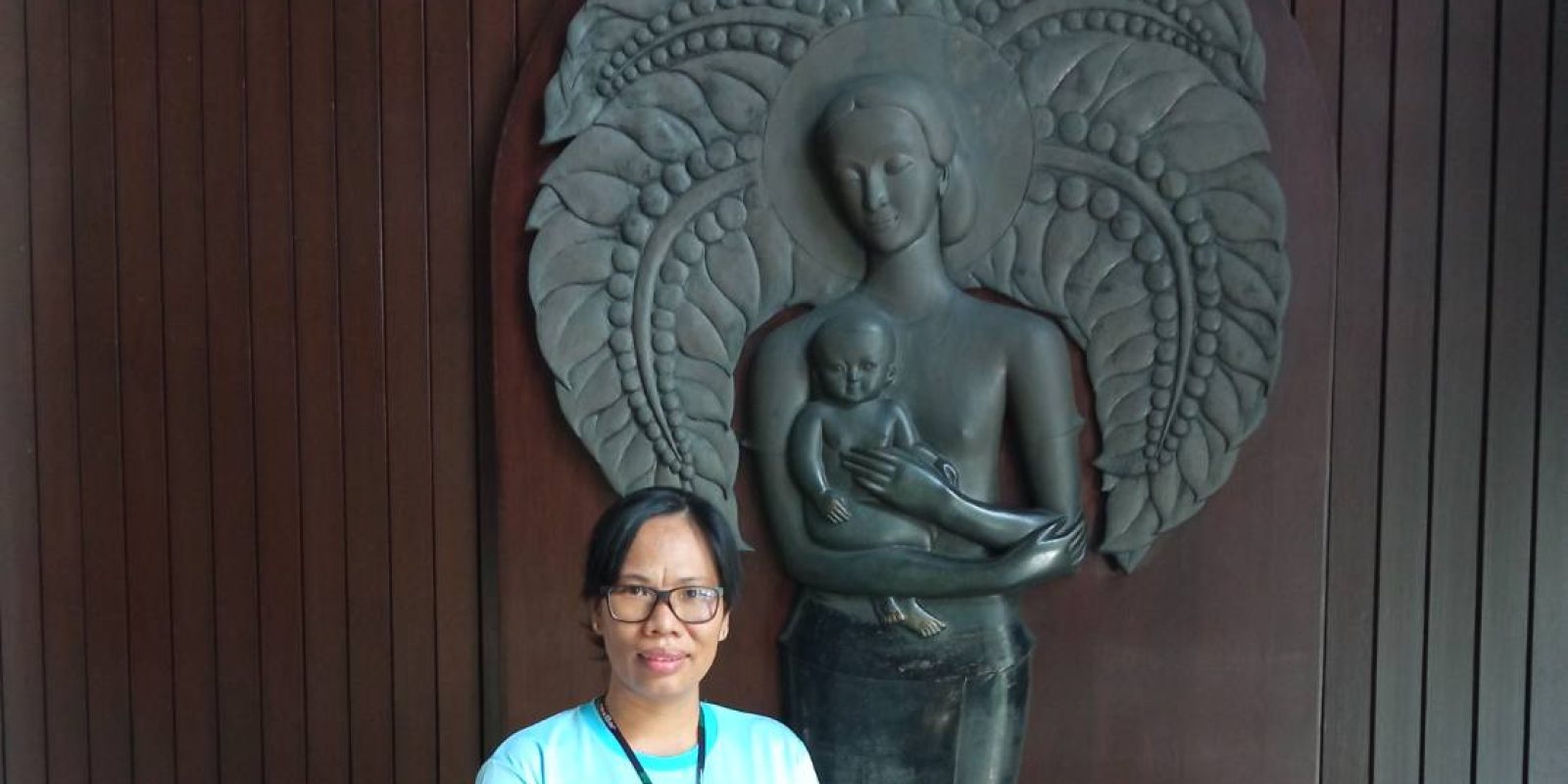Timor Leste: Returnees find hardship at home
26 July 2010|Oliver White, regional communications advocacy officer

Helena is a 50-year-old widow living in the Timorese village of Becora. Her day starts early. By 6am she is washing clothes for a local laundrette. The small amount of money she receives is just enough to feed her four children and keep three of them in school. There simply isn’t enough money to pay the fees for her 8-year-old son.
She was forced to flee her home during the 2006 conflict between the military, police and people considered to be either Lorosae (Eastern) or Loromonu (Western).
“I became an IDP [an internally displaced person] in 2006. The violence was very bad,” she recalls.
Helena and her four children took shelter in an IDP camp in Dili. Despite government assistance life in the camp was harsh.
“In the IDP camps I received $[US] 200 for five months from the government but it was not enough to support us. Life was very hard. The government also helped by providing rice. I was given 10kg a month to share with my family. This was then reduced to 5kg and when we returned home we were given only 3kg per month”, says Helena.
After nearly two years in the IDP camp, Helena and her family were finally able to return home. On returning to where her home once stood she found it had been destroyed, leaving them with nothing but a pile of scorched rubble on a dusty patch of land. The government did its best to support returnees by providing financial assistance so people could rebuild their homes, but it was often insufficient.
“When I returned home the government gave me $500 to rebuild my house, but this wasn’t enough, she explains.
Helena’s struggle didn’t end once her house was rebuilt. Like many people in Dili, she finds it difficult to provide for her family. With the death of her husband, she became the sole provider for her four children, and recently, Helena was told she would lose her job at the local laundrette. She is deeply worried about what this will mean for her four children.
“I have been working washing clothes, but the owner of this company is moving. At the moment, I can only afford to keep three of my four children in school. I am worried I won’t be able to afford the fees for any of them,” admits Helena sadly.
To make matters worse, Helena is losing her sight. Her failing eyesight makes daily tasks like cleaning and working in the garden extremely challenging. Helena’s only source of income will be from the vegetables she grows on a small patch of land behind her house. Despite losing her job at the laundrette, she will continue to wake before sunrise so she can travel to the local market in the hope of selling a few vegetables.
JRS has taken Helena’s case to the Ministry of Social Solidarity and is advocating for financial support to keep her children in school.
JRS accompanies and provides material support for returnees and other individuals in particularly vulnerable circumstances, such as the older people, widows and persons with disabilities in four villages in Timor Leste.
“I would like my children to attend school but I have a big problem. How can I afford the fees? I hope the government can help”, she said.


